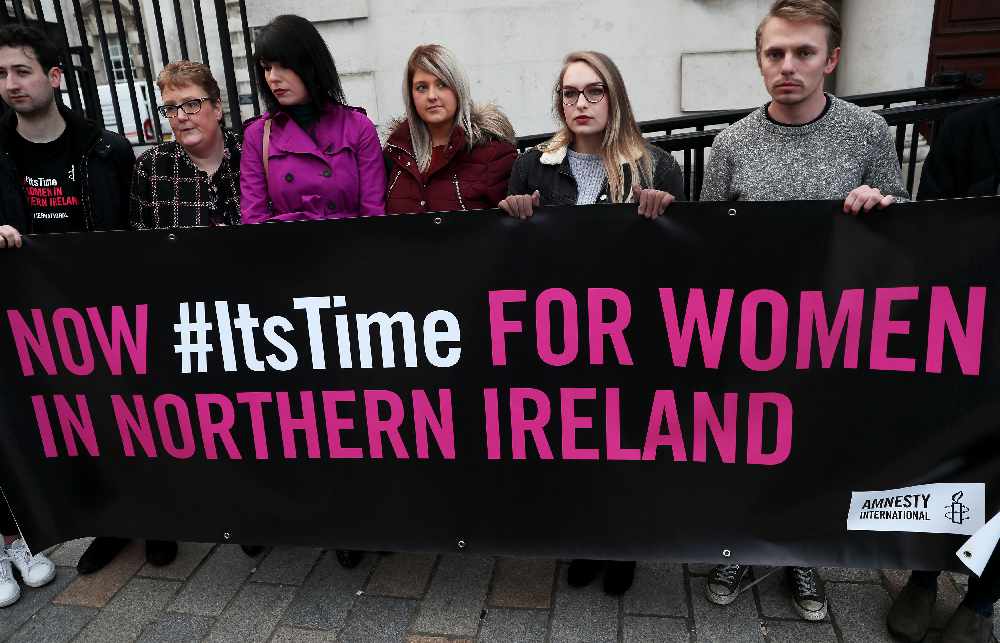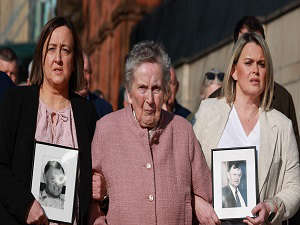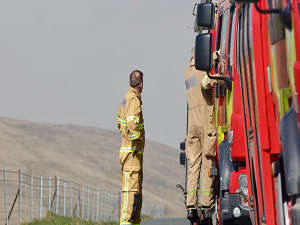
By Jonathan McCambridge and Rebecca Black, PA
The Government’s failure to establish abortion services for women in Northern Ireland is a “lamentable and deeply troubling exercise in finger-pointing”, the High Court in Belfast has heard.
The Northern Ireland Human Rights Commission is taking Secretary of State Brandon Lewis, as well as the Northern Ireland Executive and the region’s Department of Health, to the High Court for a case challenging their failure to commission and fund abortion services.
Abortion laws in Northern Ireland were liberalised in 2019 following legislation passed by Westminster at a time when the power sharing government in the region had collapsed.
The Government’s failure to establish abortion services for women in Northern Ireland is a “lamentable and deeply troubling exercise in finger-pointing”, the High Court in Belfast has heard.https://t.co/Oqdd5ShxKu
— Q Radio News (@qnewsdesk) May 26, 2021
However, while individual health trusts have been offering services on an ad-hoc basis, the regulations were brought forward as the Department of Health had yet to centrally commission the services region-wide.
Opening the case on Wednesday, David Blundell QC, representing the Northern Ireland Human Rights Commission, said: “This is a challenge to the Secretary of State’s failure expeditiously to provide a comprehensive abortion service in Northern Ireland.”
He added: “I want to make four headline points at the outset. First of all, abortion is now legal in Northern Ireland and has been since March 31 2020.
“Secondly, the Secretary of State is under a legal duty imposed by Parliament to introduce the required abortion services expeditiously, recognising the importance of doing so to the human rights of women in Northern Ireland.
“Thirdly, in practice, women in Northern Ireland do not have access to abortion services to which they are entitled by law, so that is more than a year, 14 months, without those services.
“Fourthly, we say the impact on those women is significant and has been known by the Secretary of State.”
Mr Blundell added: “Having established a domestic right to abortion the State has to make it practically available.
“Overall, what emerges is a lamentable and deeply troubling exercise in finger-pointing and the abdication of legal responsibility.
“The Secretary of State says it is for the Department to commission services and the Department has failed to do so. The Department says it is obliged to bring the matter to the attention of the Executive. The Executive denies that it is anything to do with it.”
Last month, the House of Commons formally approved regulations which enable Mr Lewis to take action on rolling out abortion services in Northern Ireland.
The Northern Ireland Human Rights Commission’s case supports a woman who was affected by the lack of commissioning of services during the Covid-19 pandemic.
She has been granted anonymity by the court.
Meanwhile director of anti-abortion campaign group, Precious Life, Bernadette Smyth, staged a protest over the lawyers' challenge to the Secretary of State outside the High Court in Belfast.
She says that the Westminster government had no right to bring the law in Northern Ireland in line with that of the rest of the United Kingdom, as she believes the majority of people in the region support a total ban.
Speaking before the hearing began, chief commissioner of the Northern Ireland Human Rights Commission said the legal action is to ensure access to abortion services.
“The Commission believes that the failure of the NI Executive and Department of Health to enable the funding and commissioning of abortion services in Northern Ireland breaches the European Convention on Human Rights,” he said.
“We are disappointed at having to take legal action again. However, whilst women’s and girls’ human rights continue to be violated, we will continue to challenge the law and practice in Northern Ireland.
“We would like to thank the woman who has bravely supported this case and shared her story to help (prevent) further women and girls from having to go through such experiences in the future.”

(The law in Northern Ireland was changed in 2019 to bring regulations in the region in line with those in the rest of the NHS throughout the United Kingdom)


 O’Neill writes to PM urging public inquiry into Sean Brown murder
O’Neill writes to PM urging public inquiry into Sean Brown murder
 Campaign to increase cancer awareness through pharmacies rolled out
Campaign to increase cancer awareness through pharmacies rolled out
 Concern over PSNI vehicles fleet, with 20% off road at worst point in 2023
Concern over PSNI vehicles fleet, with 20% off road at worst point in 2023
 Man released by police after Newry stabbing incident
Man released by police after Newry stabbing incident
 Firefighters tackle almost 150 wildfires across three days in Northern Ireland
Firefighters tackle almost 150 wildfires across three days in Northern Ireland